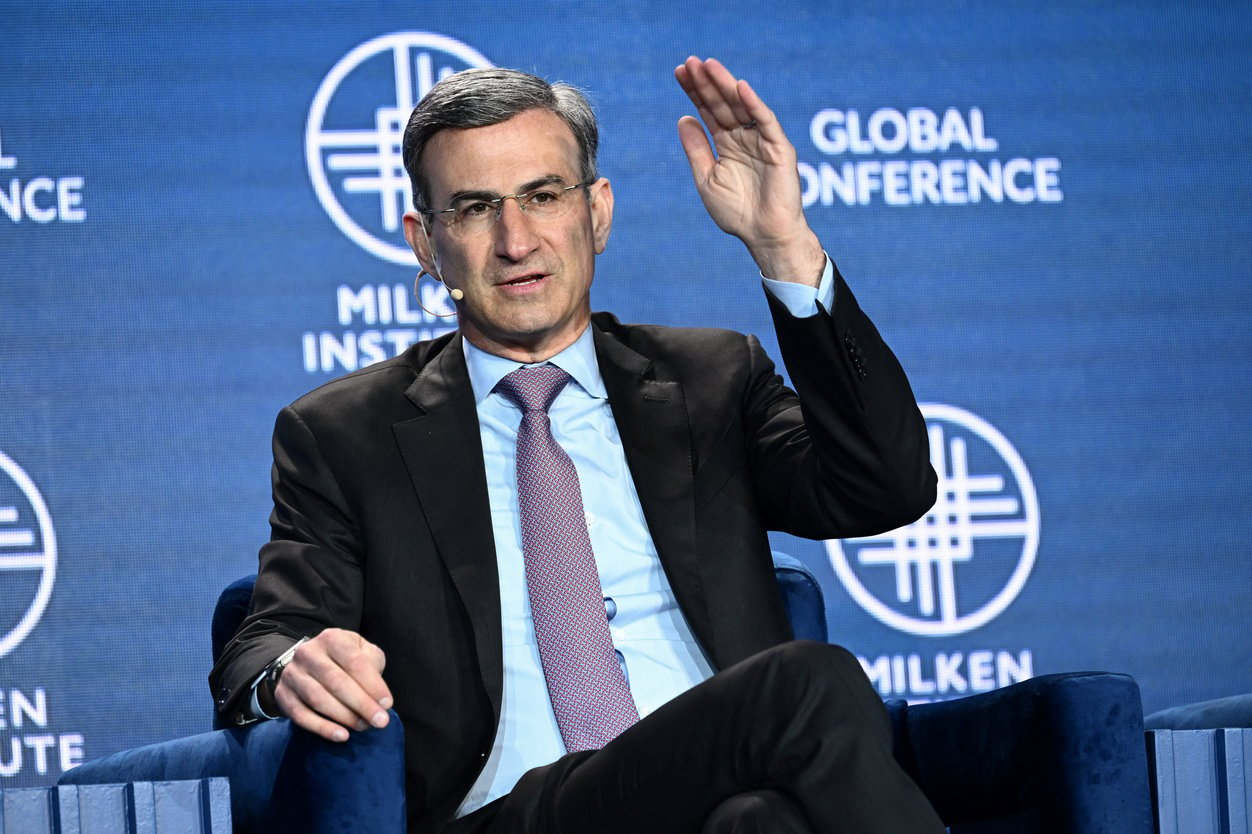mergers
A self-interested plea from Peter Orszag

Patrick T. Fallon/AFP via Getty Images
Peter Orszag, CEO of Lazard, went on CNBC last week and criticized how the Federal Trade Commission and Department of Justice were gumming up health care mergers. Look closely at what he said (emphasis mine):
“In health care, they [the DOJ] have a task force on vertical integration, but that’s what the policy impetus is towards,” Orszag said. “So, you’ve got different parts of the government in conflict with one another.”
If the name Peter Orszag sounds familiar, that’s because he was instrumental in crafting the Affordable Care Act in the Obama administration. So, to recap: A prominent policymaker helps create a major health care law that he anticipated would encourage more health care mergers, leaves government for a global investment bank that has since advised on numerous vertical health care mergers (like Aetna’s 2018 sale to CVS Health), and now wants antitrust officials to dial back their reviews because they’re going against the policy he made — and messing with his business.
Revolving door aside for a moment: Orszag has been an evangelist for vertical consolidation in health care. But there is no evidence those deals have led to lower prices or improved quality of care for Americans. In fact, the evidence suggests they have made things worse. Read the story for more.
drugs
The known and unknown of Medicare’s negotiations
Since 2003, Medicare has been prohibited from negotiating drug prices with pharmaceutical manufacturers. That era is over.
The initial numbers indicate Medicare is a better negotiator than the health insurance companies and pharmacy benefit managers that run Part D plans. (It helps to have the power to levy penalties.) As my colleague Rachel Cohrs Zhang reported, if the negotiated prices for the 10 selected drugs had been in effect in 2023, Medicare would have saved $6 billion on net spending, which would have been a 22% reduction. (Ignore the inflated numbers that use the drugs’ list prices.)
But there are some “buts.” To start: These negotiated rates won’t go into effect until 2026, meaning the savings will almost certainly be less since rebates and generics will likely drive current net prices further downward. In addition, we have no idea what the savings look like for each individual drug because CMS can’t disclose individual net prices. “We just can’t detail it out further because of the proprietary nature of rebates,” CMS’ Center for Medicare Director Meena Seshamani told me last week. Seshamani also said she still thinks the $6 billion figure is a “good order-of-magnitude estimate” of what can be saved in 2026.
There will be a lot to sort through in the coming years, but even drug companies themselves have viewed this first pass as manageable. It’s also worth remembering that Medicare already sets prices for hospitals, doctors, nursing homes, and other providers — and the world has not ended.
insurance
Battle of the giants, part two
Earlier this month, my colleague Tara Bannow told you about a “battle of the giants,” the ongoing contract dispute between UnitedHealthcare, the country’s largest health insurer, and HCA Healthcare, the country’s largest hospital chain. At stake is UnitedHealthcare members’ in-network access to 38 hospitals in four states.
UnitedHealth has a similar spat playing out with another hospital giant, Trinity Health. But this conflict has been much more confusing because it’s created a messy patchwork of in-network and out-of-network members, even among people who live in the same areas.
There are now two Trinity regions in the Northeast that are out-of-network with UnitedHealthcare, although some members are protected by grace periods until Sept. 1. For example, commercial members still have in-network access to Trinity’s hospitals, but not its doctors. Medicare Advantage members have no in-network access at all. It’s a mess. Read more from Tara.



